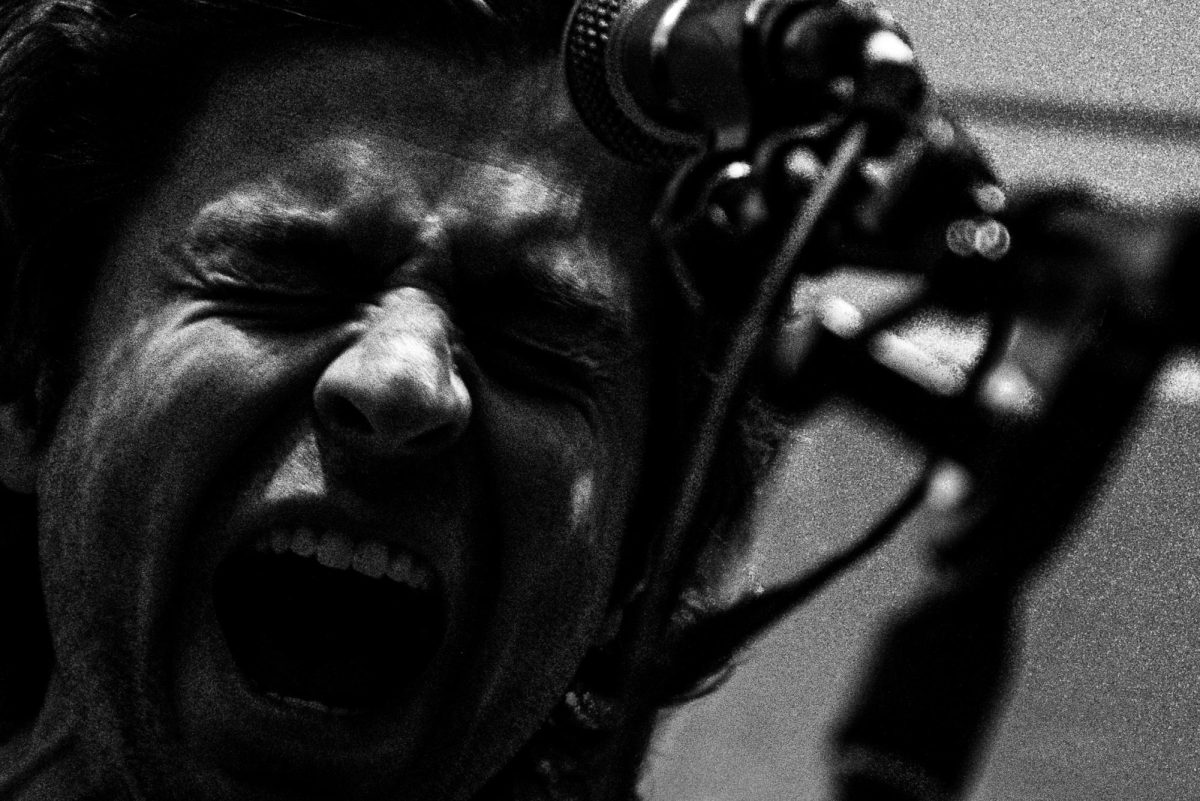The Looking Glass: Mr Twin Sister
October 6, 2014

In Mr Twin Sister, the former band members of Twin Sister introduce a paradoxical shift in redefining and escaping their former work: a movement forward without hesitation, the inexpressible act of mimicry that persists beyond the circuit of ‘In Heaven’ (2011) and ‘Color Your Life’ (2010). It is no accident that in searching for a new passage to explore, we are, in the most basic sense, reexamining the basic characteristics put forth by Twin Sister throughout Mr Twin Sister’s work.
The sound with whom we are confronted with in this album does have a lot in common with the In Heaven, which reigns throughout the domain of tracks like “Blush”. The sound of Mr Twin Sister is, however, another Twin Sister, a sound that does not speak of youthful desire ÛÒ a language spoken to us directly in “Stop” ÛÒ rather, the language of longing and open desire. It is, quite frankly, put well enough by the adage of mimicry itself: it is almost identical but not quiteÛ_
How are we to approach this notion of mimicry? It is a difficult phenomenon, which appears to both allow for the expression of the individual characteristics of Mr. Twin Sister, as the album itself will say, while simultaneously denoting itself as an expression of a former self.
Seeking a ground which we, as listeners, can begin to track the traces of the former albums ÛÒ it is clear throughout the airy and jazz filled rooms conjured by “Out of the Dark”, that we are caught within a nexus of an indeterminate struggle, self-over-coming-self, a trail by death in which the middle term collapses into a dialectic of mimicry: “Whatever happened to poor dear me?/Never see that face again/No one wants to leave/Û_ You’re pushing on my identity/How much longer do I need to be this version of me” is sung in “Out of the Dark”. All changes seen in Mr Twin Sister are effects of a larger, more daring struggle; all effects are effects of a certain will to become.
If, right now, the term become is of any theoretical significance to this album, to this band, then the mimicry in Mr Twin Sister is of the highest order ÛÒ it is postmodernism par excellence. All changes are reiterations of effects; these new iterations also seem to sense the tension between the given interval ÛÒ the soft pauses between refrains, the silence that emerges throughout the discordance of vocal and instrumental sound seen in “Crime Wave” ÛÒ and the previous work ÛÒ the whimsical enjoyment of these silences heard in “Lady Daydream“ ÛÒ a landscape demarcated by cautiousless anxiety, of open spring time meadows.
And yet this tension proposed here does clearly emerge into a coherent statement: in “Blush” we gleam, “Could you be near me,/There’s something I need to say/Û_ If you could just greet me,/I would make everything right,/Inside there’s a real me.”
This iteration, this emergent will is connected to an outwardness, a certain projection beyond itself, rather than a willing for the same. This is perhaps the most significant moment in Mr Twin Sister: this is a way of saying that what their act of mimicry suggests is a theoretical openness. The moments of self-understanding and self-creation sweep across the pictorial plane of time, the moments before slip into the moments of the present.
Such a seizure is sudden, turbulent, and compelling. The movement of the album ÛÒ of the band moreover ÛÒ is moved by a kind of stirring up within itself, a lifting beyond itself: of this, in “Blush”, “Because I’m shinning away from the night/Don’t you believe me?/Are you alright?/Is this even the real me?/Or am I just a series of nights?”
The importance of this album lies in how it conceives of the nature of mimicking its alleged self-nature ÛÒ that of its being, say ÛÒ as something similar and yet indefinable, something that can be only grasped in terms of almost identical but not quiteÛ_














